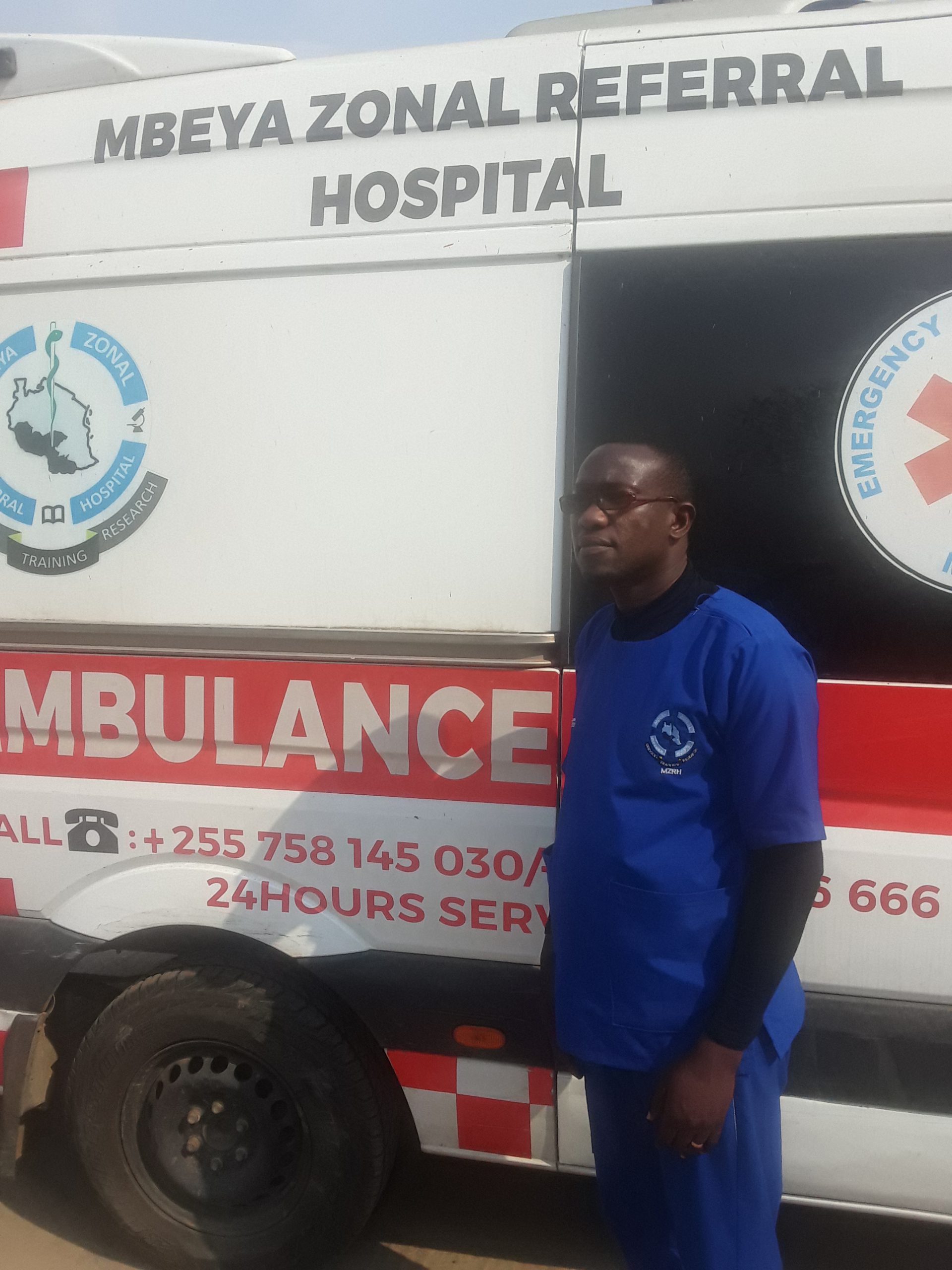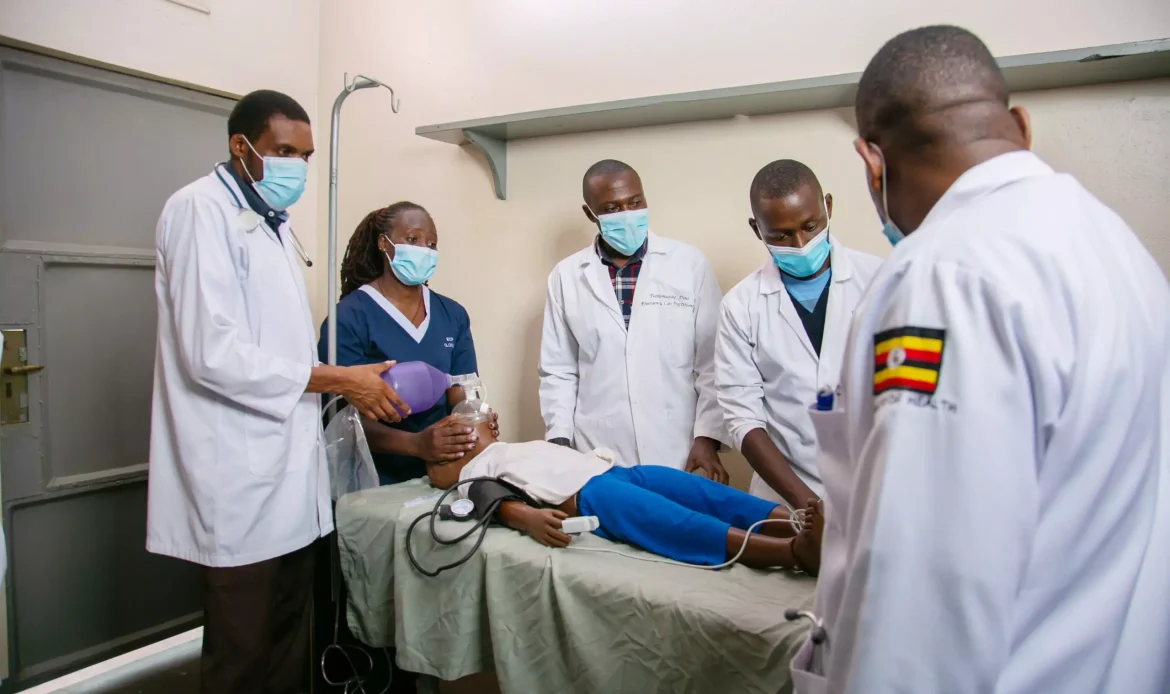This article was published in The Citizen Newspaper, Tanzania on 12th September, 2021.
On the 11th of September every year the world celebrates the International First Aid day. This day allows a chance to examine the international and local uptake, growth and prospects in the field of Emergency Care and First aid. Though the concept ‘first aid’ is a familiar one, its content is indubitably not sufficiently known.
According to experts, first aid emergency care provided to a person with minor or serious injury which is administered by any trained person, to help minimize the risks of greater harm happening to the patient. In developed countries people are trained to certain substantial levels of competence in administering First Aid, though it is formally administered by qualified Paramedics.
Prosper Bashaka, (MD, MMED) is a specialist in Emergency Medicine; he is the head of department of Emergency medicine at MZRH and also a Southern Highlands Zonal Representative of the Tanzanian Emergency Medicine Association. In his capacity, he readily spoke about the situation of First Aid and Emergency Care.
At the Emergency Care department of MZRH, which is the largest and most equipped in Southern Highlands, emergency care patients are categorized into two. First are self-referral patients who come themselves, and second, referral patients from low levels hospitals. Casualties of trauma, that is victims of accidents, are received from all levels.
When the patient arrives, the triage unit receives him or her and a quick risk assessment is conducted. This entails risks of communicable diseases, and any impending dangers resulting from air-way problems, breathing problems, or circulatory system problems.
Thereafter a patient is appropriately categorized as either emergency patient, priority patient or queue patient. A patient is usually being attended while the hospital logistics of records and finances go on.

At MZRH, 100 to 150 patients are received by the Emergency Department. Among these are patients of infectious diseases, trauma (accidents) conditions, Non communicable diseases (NCDs), oncological conditions, and mental illnesses.
Of all infectious diseases account for (35.3%) and 20% are children (aging from 0-17). The Hospital has in place a nice arrangement to maximize the utility of her medical personnel such that the needs are catered for, and no patient is left unattended, or loses life because of lack of care.
Many patients are being referred to the hospital through the emergency MZRH mobile number 0735 126 666.
The department has a free standby and equipped ambulance service to ferry the patients to the hospital on time.
As patients are brought from homes, offices, and other places, Dr. Bashaka assessed the level of pre-hospital care given to these patients. In his informed opinion, most people are not equipped with knowledge of First Aid. Most patients are brought to the hospital completely unassisted.
There are serious cases, and which ordinary people cannot attend to such as Diarrhoea, or unprecedented complications like asthma attach, heart attack and PV bleeding of expectant women.
But simple procedures like airway mobilization, broken bone mobilization, and wound compression are supposed to be in the general knowledge of our people. There are possibly many lives that are lost because of lack of proper pre-hospital care. Patients in turn arrive at the hospital when they are already critical.
There are several myths with regards to first aid. Dr. Bashaka was fast to admonish against use of such things as sand to cover bleeding wounds, and sugar or rabbit feathers for burns. These can be carriers of more perilous diseases like tetanus.
Always, the major concern of both first aid and emergency care should be safety, that is, safety of the patient as well as the care giver. This is the reason for use of protective equipment in delivering emergency care.
Sensitizing about insurance, Dr. Bashaka commended it as a helpful initiative, though more effort is needed to have more people insured.
Speaking about the same, the Public Relations Officer at MZRH, Mr. Arcad Mosha highlights that the hospital has been very successful in providing first aid and emergency services. “We have always been available to provide Emergency Care to the community in tragic events like domestic accidents, road accidents, and fire outbreaks, where we offer both personnel and ambulances. Our experts also work to provide public education about First Aid and Emergency care.”
Mr. Mosha further opines that first aid awareness and practice is crucial for everyone because it saves lives and expels the dangers before the patient arrives at the hospital. By providing immediate and effective first aid we reduce severity of injuries and illnesses and promote assurance of recovery.
Notwithstanding, more effort is needed to train the public in first aid, and the healthcare providers in Emergency care. The programme, as Dr. Bashaka and Mr. Mosha recommend, should be incorporated in secondary school curricula and in institutes of higher learning.
So far, with the annual trainings facilitated by MZRH Emergency Care Department, numbers of deaths have markedly reduced. Regardless of specialty, intensive Emergency Care trainings ought to be mandatory to all healthcare providers in the country.
